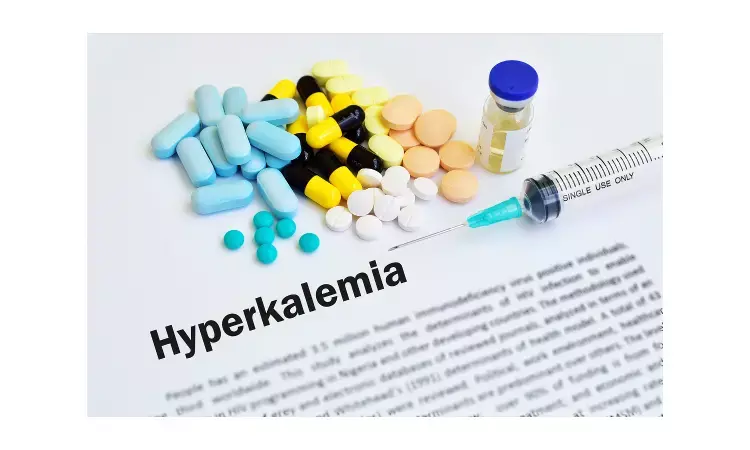- Home
- Medical news & Guidelines
- Anesthesiology
- Cardiology and CTVS
- Critical Care
- Dentistry
- Dermatology
- Diabetes and Endocrinology
- ENT
- Gastroenterology
- Medicine
- Nephrology
- Neurology
- Obstretics-Gynaecology
- Oncology
- Ophthalmology
- Orthopaedics
- Pediatrics-Neonatology
- Psychiatry
- Pulmonology
- Radiology
- Surgery
- Urology
- Laboratory Medicine
- Diet
- Nursing
- Paramedical
- Physiotherapy
- Health news
- Fact Check
- Bone Health Fact Check
- Brain Health Fact Check
- Cancer Related Fact Check
- Child Care Fact Check
- Dental and oral health fact check
- Diabetes and metabolic health fact check
- Diet and Nutrition Fact Check
- Eye and ENT Care Fact Check
- Fitness fact check
- Gut health fact check
- Heart health fact check
- Kidney health fact check
- Medical education fact check
- Men's health fact check
- Respiratory fact check
- Skin and hair care fact check
- Vaccine and Immunization fact check
- Women's health fact check
- AYUSH
- State News
- Andaman and Nicobar Islands
- Andhra Pradesh
- Arunachal Pradesh
- Assam
- Bihar
- Chandigarh
- Chattisgarh
- Dadra and Nagar Haveli
- Daman and Diu
- Delhi
- Goa
- Gujarat
- Haryana
- Himachal Pradesh
- Jammu & Kashmir
- Jharkhand
- Karnataka
- Kerala
- Ladakh
- Lakshadweep
- Madhya Pradesh
- Maharashtra
- Manipur
- Meghalaya
- Mizoram
- Nagaland
- Odisha
- Puducherry
- Punjab
- Rajasthan
- Sikkim
- Tamil Nadu
- Telangana
- Tripura
- Uttar Pradesh
- Uttrakhand
- West Bengal
- Medical Education
- Industry
Stopping Renin-angiotensin inhibitors in hyperkalemia lowers recurrence risk but not CV events

The renin-angiotensin inhibitors (RASi) plays a crucial role in the pathogenesis of hypertension (HTN). Angiotensin-converting enzyme inhibitors (ACEIs) and angiotensin II receptor blockers (ARBs) are first line anti-HTN drug classes that are potent, effective and largely safe. Limited observational studies have explored the consequences of stopping RASi in patients experiencing hyperkalemia. Previous studies were limited by inadequate control of confounding, prevalent-user and immortal-time biases or selection of patients hospitalized due to acute heart failure.
An observational study by Dr Yang Xu, Pharm, PhD and team has revealed that stopping RASi after hyperkalemia may be associated with a lower risk of recurrence of hyperkalemia, but it still posed a higher risk of death and cardiovascular events. The decision to stop RASi after hyperkalemia isn't random, however the consequence of complex factors likely have poor outcomes.
The study is published in American Heart Journal.
The objective of the study was to evaluate the effects of stopping RASi in hyperkalemia patients.
The study was observational study from the Stockholm Creatinine Measurements (SCREAM) project including patients initiating RASi in routine care and surviving a first-detected episode of hyperkalemia (potassium >5.0 mmol/L). Target trial emulation techniques based on cloning, censoring and weighting to compare stopping vs. continuing RASi within 6 months after hyperkalemia was used. Outcomes were 3-year risks of mortality, major adverse cardiovascular events (MACE, composite of cardiovascular death, myocardial infarction and stroke hospitalization) and recurrent hyperkalemia.
The results of the study were
• A total of 5669 new users of RASi who developed hyperkalemia (median age 72 years, 44% women), 1425 (25%) stopped RASi therapy within 6 months.
• Compared with continuing RASi, stopping therapy was associated with a higher 3-year risk of death (absolute risk difference 10.8%; HR 1.49, 95% CI 1.34-1.64) and MACE (risk difference 4.7%; HR 1.29, 1.14-1.45), but a lower risk of recurrent hyperkalemia (risk difference -9.5%; HR 0.76, 0.69-0.84).
• Results were consistent for events following potassium of >5.0 or >5.5 mmol/L, after censoring when the treatment decision was changed, across prespecified subgroups, and after adjusting for albuminuria.
Dr Xu, and team concluded that "These findings suggest that stopping RASi after hyperkalemia may be associated with a lower risk of recurrence of hyperkalemia, but higher risk of death and cardiovascular events."
Reference: https://doi.org/10.1016/j.ahj.2021.09.014
Medical Dialogues consists of a team of passionate medical/scientific writers, led by doctors and healthcare researchers. Our team efforts to bring you updated and timely news about the important happenings of the medical and healthcare sector. Our editorial team can be reached at editorial@medicaldialogues.in.
Dr Kamal Kant Kohli-MBBS, DTCD- a chest specialist with more than 30 years of practice and a flair for writing clinical articles, Dr Kamal Kant Kohli joined Medical Dialogues as a Chief Editor of Medical News. Besides writing articles, as an editor, he proofreads and verifies all the medical content published on Medical Dialogues including those coming from journals, studies,medical conferences,guidelines etc. Email: drkohli@medicaldialogues.in. Contact no. 011-43720751


